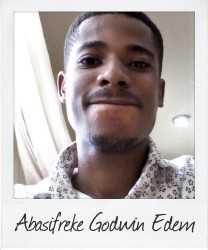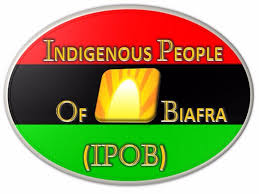“We should have learned from the first one”
December 21 An overheard conversation leads Abasifreke Godwin Edem, 22, a Correspondent from Uyo in Nigeria, to speak up about the need to work for reconciliation and peace.
An overheard conversation leads Abasifreke Godwin Edem, 22, a Correspondent from Uyo in Nigeria, to speak up about the need to work for reconciliation and peace.
Sitting back on a cushion seat of a mini bus right behind the driver’s seat and looking through the glass window, I was trying to meditate on what was preached during the Bible studies in Church, which I left not long ago to head toward home.
Soon distracted by the discussion of other passengers – especially two old-aged men who were comfortably seated behind me – with keen interest I paid close attention to their discussion. It was interesting and obviously timely.
Though a sort of peaceful argument, their topic of reflection was on the current agitation of youths in my country Nigeria, specifically the South Eastern region under the umbrella name Indigenous People of Biafra (IPOB). Some say they are seeking conflict, similar to the civil war that wracked Nigeria from 1967-1970.
These co-passengers were all trying to reason together and sort how to inform about the need not to think of another war, stating reasons ranging from killings to destruction of poverty, poverty, and disease outbreaks.
In the swiftly moving bus I sat quietly and listened, though I couldn’t give any contribution concerning the issue. Because the bus driver was actively participating in deliberating, I gained lot of information about the need for peaceful coexistence in times like this in my country, where there are lot of challenges facing us as a nation.
Consequently, after some weeks, it came across that I should write and report to Commonwealth youth and others worldwide about this issue, so they could rise to help, especially in the area of raising awareness among the youth of IPOB and surrounding localities who are at the forefront of this agitation. They could help them see the need of refraining by all possible means from war and rather continue in peaceful coexistence.
The separatist Indigenous People of Biafra wants a number of states in south-east Nigeria, made up mainly of people from the Igbo ethnic group, to break away from Nigeria and form the independent nation of Biafra.
To achieve this, the group is calling for a referendum, stating that they will continue to agitate until the Nigerian government fixes a date for the referendum “to settle the issue of Biafra in a civilised and democratic manner”.
On 20 September 2017, a Federal High Court in Abuja granted the Nigerian Federal Government an interim injunction proscribing the activities of IPOB. Amnesty international has accused the Nigerian army of repression and killings, and there are several other reports about the IPOB that shows a great potential for war outbreak if appropriate measures are not considered and carried out.
However, my point of interest, outside my desire to continue in the current state of peaceful coexistence in my country, is the plight of the youth community who are pacesetters in situations like these. With certainty, we know if peradventure this agitation results in conflict, the majority of middle aged men will be the ones involved and killings, destruction, injury, poverty, family separations, and exile are inevitable.
I want to use this opportunity to beckon on our Commonwealth counterparts to help rescue the situation in my country through youth awareness and peace facilitation channeled directly to these people.
Lieutenant- Colenel Chuckwuemeka Odemegwu Ojukwu, a one-time leader in a similar agitation that resulted in the Biafran war, before he died gave a last warning to Nigerians: “A lot of people would say, but you were leading the first one? I lead the first, and I would say to everyone, I led proudly the first one, I don’t think a second is necessary, we should have learnt from that one, otherwise the death would have been to no avail, it could have been in vain “.
I strongly rest on this advice. A second is not necessary, we should have learnt from the first one.
…………………………………………………………………………………………………………………
About me: I am currently pursuing my bachelor’s degree in Electrical/Electronics in the University of Uyo, Uyo Akwa Ibom state, Nigeria. My passion is writing alongside speaking, humanitarian services, and peace facilitation. I am aspiring to reach the climax of my career as an engineer by training and an evangelist by calling so I could represent and be a voice to the voiceless here in Nigeria and worldwide.
…………………………………………………………………………………………………………………
Opinions expressed in this article are those of the author and do not necessarily represent the views of the Commonwealth Youth Programme. Articles are published in a spirit of dialogue, respect and understanding. If you disagree, why not submit a response?
To learn more about becoming a Commonwealth Correspondent please visit: http://www.yourcommonwealth.org/submit-articles/
…………………………………………………………………………………………………………………




